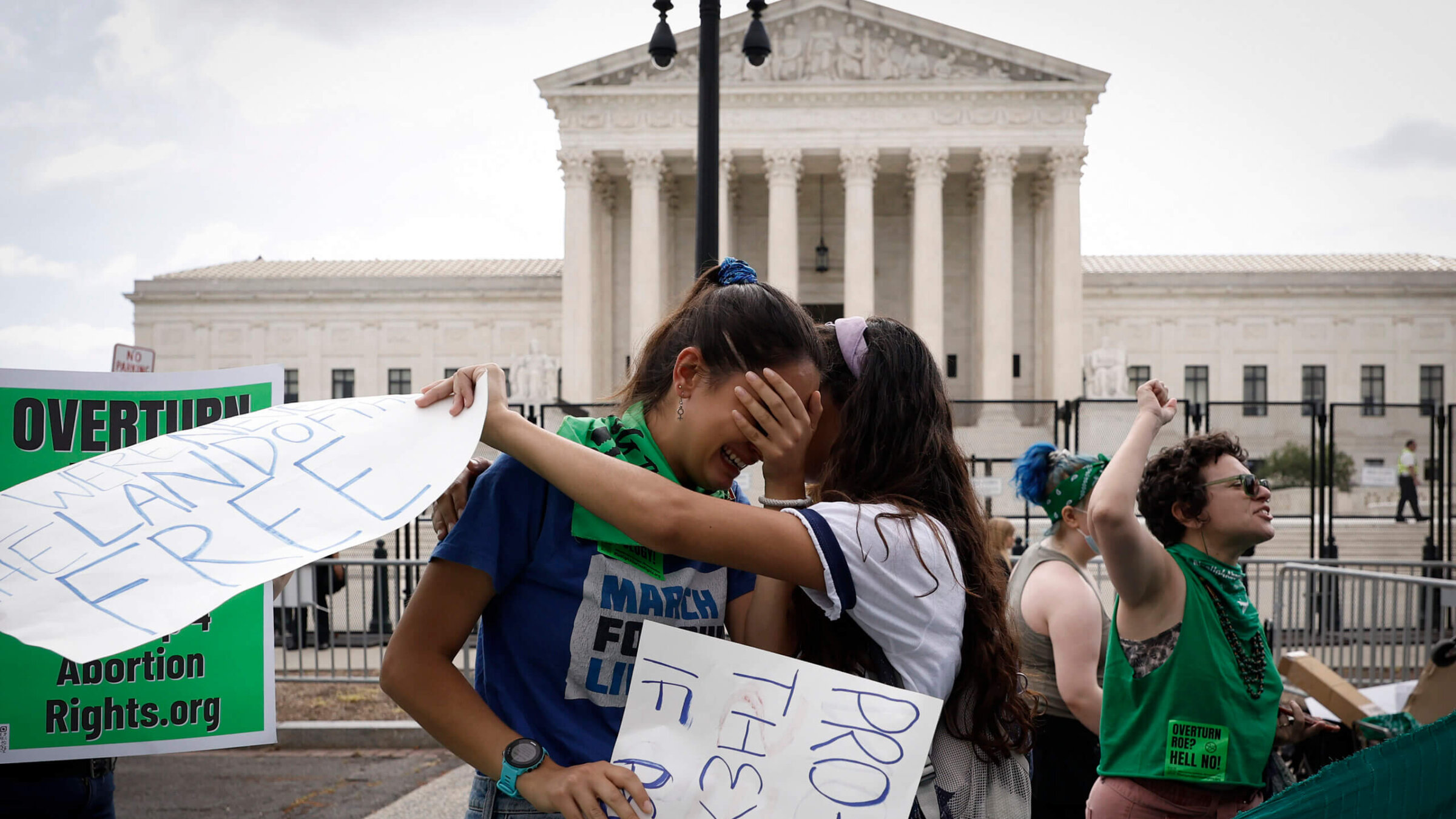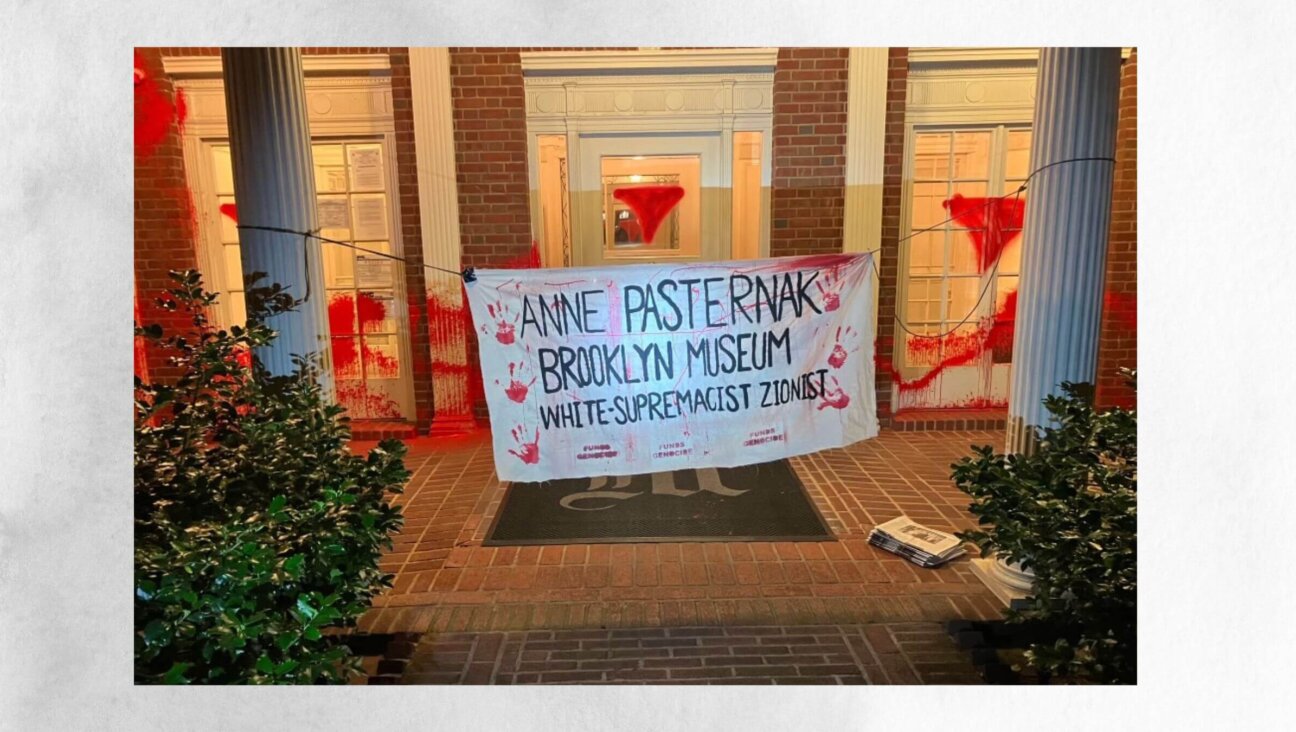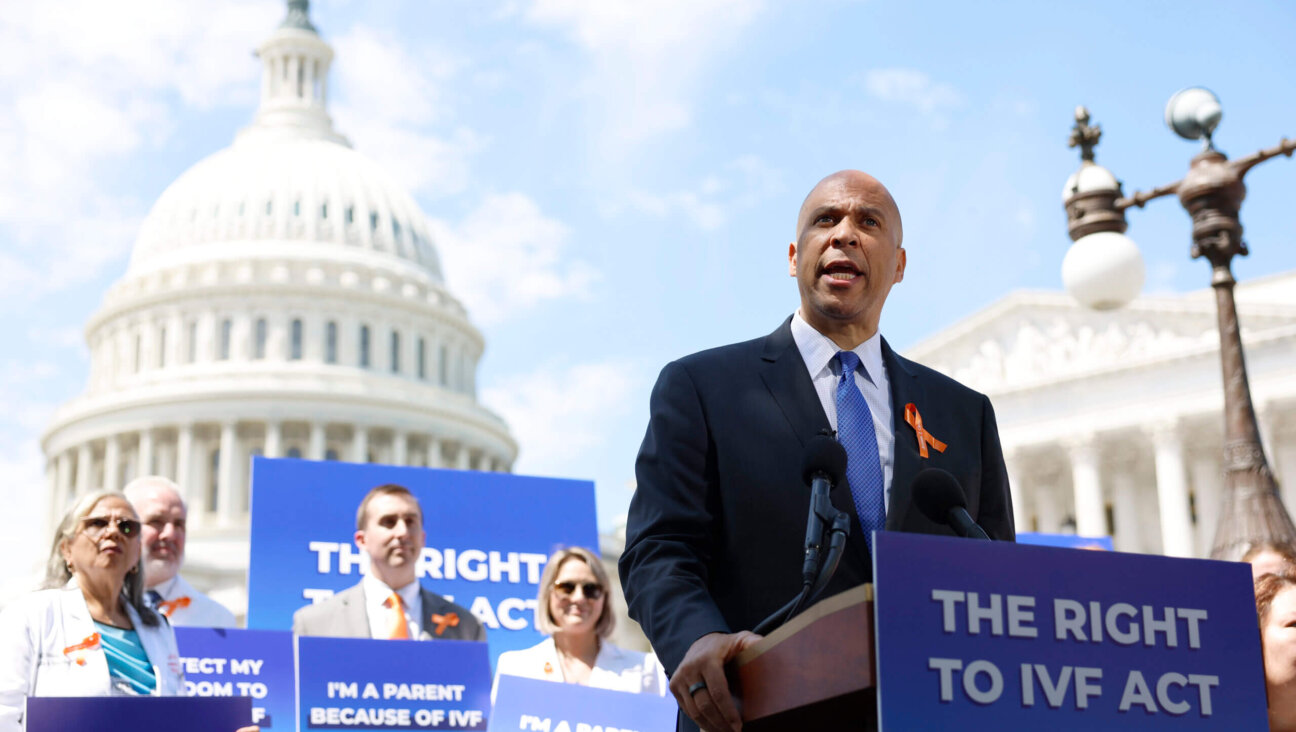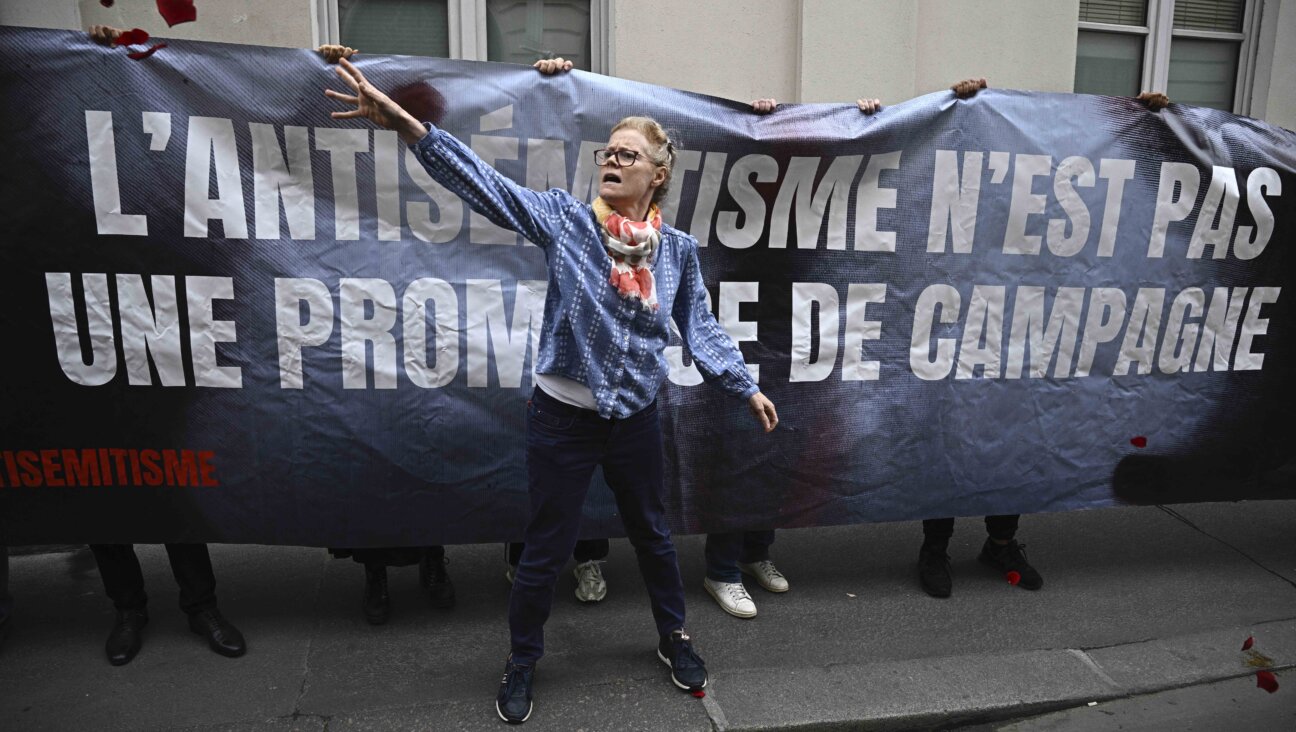The loss of abortion access demands a day of collective mourning
One year into the reversal of Roe v. Wade, it is clear that forced birth takes lives

Abortion rights activists Carrie McDonald (L) and Soraya Bata react to the Dobbs v Jackson Women’s Health Organization ruling which overturns the landmark abortion Roe v. Wade case in front of the U.S. Supreme Court on June 24, 2022 in Washington, DC. Photo by Anna Moneymaker/Getty Images
Editor’s note: We published this piece last year, a year after Roe v. Wade was overturned, and Americans’ federally protected right to abortion access ended. It has now been two years since that unprecedented Supreme Court ruling.
Fourteen states have since imposed a nearly total ban on abortions; another seven have restricted access to the procedure earlier in the gestational term than accords with the precedent set by Roe. Yet despite these new barriers to reproductive healthcare access, the rate of abortions that occurred in the healthcare system rose 11% in 2023, according to the Guttmacher Institute. Twenty-one states have also added new protections to preserve abortion access.
The one-year anniversary of the Dobbs v. Jackson Women’s Health decision — the Supreme Court ruling that overturned Roe v. Wade and ended federal protections on our Constitutionally guaranteed right to abortion access — arrives this Shabbat, on June 24.
Jews must mark this day as a time of collective mourning for all those whose lives were taken from them because the government stripped them of their right to abortion access.
The Jewish tradition always prioritizes the life, health and safety of the pregnant person over that of the fetus, and saving lives, pikuach nefesh, is always our moral north star. The harm that these bans have caused is beyond comprehension.
We must mark this day as a yahrtzeit — an anniversary of a death.
Because of the Dobbs decision, 58% of the U.S. population that needs abortion care is currently living in states with no, or little, access.
One in four people who can get pregnant will terminate a pregnancy by the age of 45. Almost three-fifths of those people are mothers — parents who already have at least one child and are trying to take care of them the best that they can.
Those who desire pregnancy also need access to reproductive care during miscarriages or ectopic pregnancies, or in other cases where urgent maternal health needs or fetal tragedies may be present. Dilation and curettage procedures and the typical care for these medical emergencies are often banned as these procedures are the same as those for elective abortion.
Abortion bans also disproportionately impact Orthodox Jewish American families, who have a comparably high birth rate (an average of 3.3 children, compared to the U.S. average of 1.64). More children, of course, means more cases in which reproductive health interventions might be medically necessary.
The evidence is clear: Forced birth takes lives. Maternal death rates are 62% higher in states that ban or restrict abortion, and babies born in banned states were 30% more likely to die in their first month of life.
Black women are over three times more likely to die in pregnancy, childbirth, or right after giving birth than white women, and Indigenous women twice as likely — even though 84% of pregnancy-related deaths are preventable.
The bans also increase suicide risk among women aged 20-34.
The dangers of abortion bans are not confined to hospital operating rooms, where doctors are powerless to perform the necessary medical care to save their patients’ lives. Consider the following grim and interlocking statistics: Those denied abortion access are more likely to be trapped in abusive relationships as a result of that denied care. And we know that the leading cause of death of pregnant and postpartum women in the United States is, in fact, homicide. Reading these two sentences together makes me cry.
Most of the deaths from bans will not be recorded as such. And the day in which federal protections have been taken from us can — and must — be a time to honor all who have been harmed by bans, not just those impacted in this last year.
Since 1976, the racist Hyde Amendment has blocked Medicaid and other federal funding for abortion services; because of systemic barriers and discriminatory policy, this has disproportionately harmed Black, Indigenous and Latina women. Almost 1,400 other bans restricting abortion access were passed between Roe in 1973 and Dobbs last year. Abortion bans have always had an outsized impact on BIPOC women, poor people, disabled people, those in rural areas, young people, immigrants, and trans men and some nonbinary people.
American Jews must dedicate the anniversary of the Dobbs decision as a time of collective mourning. It is, it could only be, a yahrtzeit.
We will be observing June 24 as a time to mourn everyone whose lives were taken because the government stripped them of their right to abortion access. All the ways in which people’s health have been endangered and harmed by restrictions; the ways in which the criminalization of abortion has hurt people; in which bans trap those in abusive relationships; in which people have been pushed into, or kept in, poverty; in which they have been stripped of agency and dignity.
June 24 will be our communal day for mourning together, honoring all those who have suffered and died because of bans and recommitting to the work of fighting for reproductive freedom for all.
At National Council of Jewish Women, where I serve as scholar-in-residence, we have prepared a prayer for those harmed by abortion bans, to be recited in community, with a yahrtzeit candle and saying Mourner’s Kaddish, along with a guide for marking this time at home. We will be gathering at 1pm ET on Friday to mourn together along with 59 organizational partners, including the Reform, Conservative and Reconstructionist rabbinical associations, Jewish organizations like T’ruah, Keshet, Bend the Arc and JCPA, as well as stalwarts in the reproductive freedom space, like Abortion Care Network, Planned Parenthood and Physicians for Reproductive Heath. Everyone is welcome to join us.
We cannot let this day pass by without saying: Your life mattered. We remember you. And we will not let what you suffered be in vain.
We have an obligation to fight for a better tomorrow.
To contact the author, email [email protected].






















